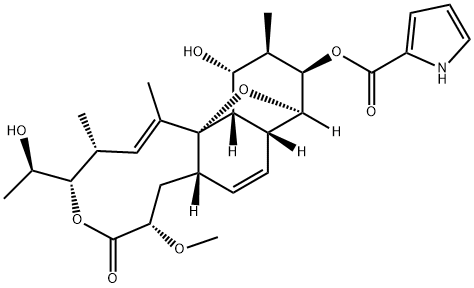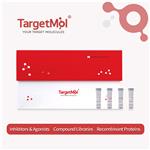Nargenicin is a macrolide antibiotic that selectively inhibits the growth of S. aureus, methicilin resistant S. aureus (MRSA), and M. luteus (MICs = 0.6, 0.3, and 2.5 μg/ml, respectively) over a panel of 11 Gram-positive and Gram-negative bacteria (MICs = >80 μg/ml). It dose-dependently inhibits S. aureus DnaE in the presence of DNase I-activated DNA and E. coli DnaE when used at concentrations of 0.00001-0.1 and 0.01-100 μg/mL, respectively. In murine BV-2 microglial cells, nargenicin (1 μM) inhibits cytokine expression and nitric oxide production induced by LPS. Nargenicin (200 μM), when used in combination with 1,25-dihydroxyvitamin D3 or all-trans retinoic acid , reduces cell proliferation by 37-47% and increases cell differentiation by 82-85% in HL-60 human myeloid leukemia cells. In vivo, nargenicin (50 mg/kg, p.o.) reduces the number of colony-forming units (CFUs) in infected kidneys by 100,000-fold in a murine model of S. aureus infection.

